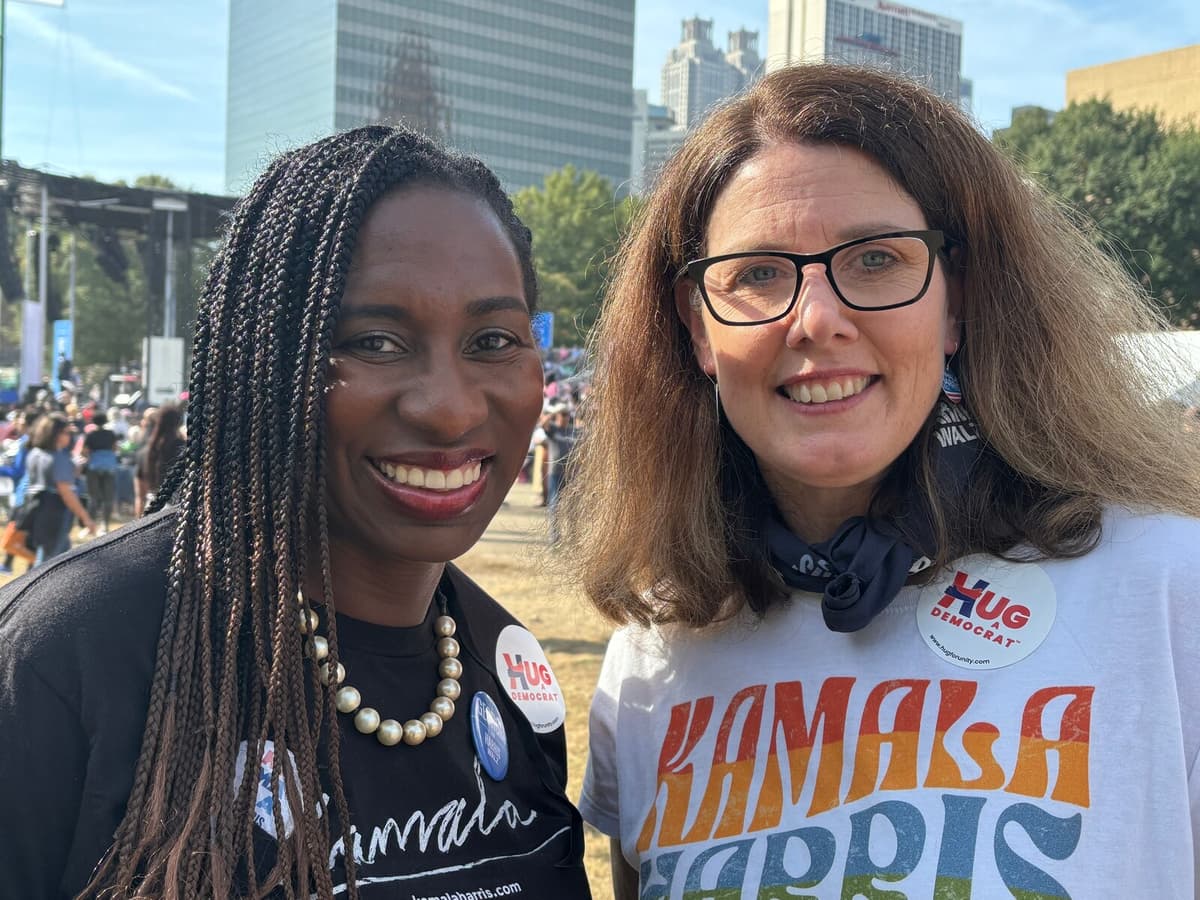The care I received after my miscarriage twelve years ago saved me. But today, it's illegal, doctors can be prosecuted for gynecological scrapings, says Hillman, who normally works at the Catholic Church's office in Atlanta but is now attending one of Kamala Harris's last campaign meetings in the city.
Her friend, healthcare administrator Aiyana Cottman, also ranks abortion rights high among election issues, alongside measures against housing shortages and protection of democracy.
The decisions women make about their bodies are personal and private. If Harris doesn't become president, I fear we'll go backwards, she says.
Frightening thought
The park in central Atlanta looks like a festival area with giant loudspeakers, enormous flags, and food stalls. The atmosphere is high, most people wear t-shirts or buttons showing their support for the Democratic presidential candidate. One of them is nurse Raeshon Greentee, who has brought her daughter Danielle to the campaign meeting. The two mention labor rights and women's rights as the most important election issues.
The thought that my daughters might have fewer rights than I do is frightening. As a nurse, I want everyone to have adequate healthcare, says Greentee.
It's voters like these that Harris hopes will flock to the polling stations. She has hammered home the message that she stands up for women's rights and wants to reintroduce abortion rights at the national level. When she takes the stage in Atlanta, the applause erupts.
One in three American women lives in a state with a Trump abortion ban. And he's not finished, she warns.
Stirring up
The issue is particularly sensitive in Georgia, where abortion is banned if a fetal heartbeat can be detected. Two high-profile cases where women died because they were denied care have shaken the state.
The abortion issue is more important for Democratic voters now than in 2020 when Roe was still in effect, notes Andra Gillespie, professor of political science at Emery University in Atlanta.
By Roe, she means the Supreme Court decision Roe v. Wade, which was in effect between 1973 and 2022 and established that abortion rights are part of the constitutionally protected right to privacy. The decision was overturned since Republican Donald Trump, during his presidency, appointed conservative Supreme Court judges.
Trump has been criticized for wavering on the issue, but said he wouldn't sign a national abortion ban. Female Trump voters TT meets in Atlanta seem satisfied that the decision lies with the states – but several think their state's rules are too tough.
Up to twelve weeks would be okay. And more focus on contraceptives, says teacher Stephanie Cole.
Tina Magnergård Bjers/TT
Background: Abortion in the USA
TTTT
Abortion is deeply controversial in the USA, spanning religion, women's rights, and poverty reduction. Between 1973 and 2022, abortion rights were nationally protected through the Supreme Court's ruling Roe v. Wade, which established that free abortion is part of the constitutionally protected right to privacy.
In 2022, Roe v. Wade was overturned, and the issue was sent back to the states.
Currently, 13 states have introduced total abortion bans, and four, including Georgia, have so-called heartbeat laws that effectively ban abortion after the sixth week of pregnancy. In some places, exceptions are made for cases where the pregnancy was caused by incest or rape or where the mother's life is in danger.
50 percent of Americans think abortion should be legal under certain circumstances, 35 percent are in favor without restrictions, and 12 percent want a ban, according to an opinion poll from May this year.
Sources: Guttmacher, Gallup, and others






